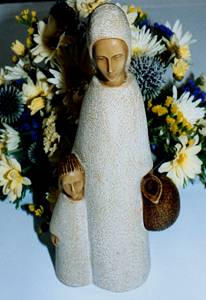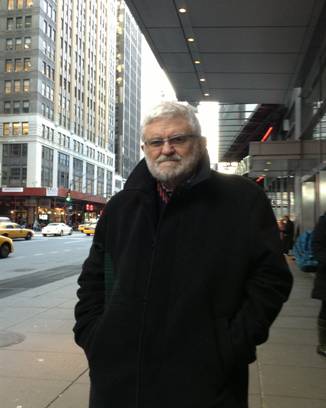
chris@mcdonnell83.freeserve.co.uk
Previous articles by Chris
June 5, 2013 Chris McDonnell, UK
The Parish Community

|
|
chris@mcdonnell83.freeserve.co.uk
Previous articles by Chris June 5, 2013 Chris McDonnell, UK The Parish Community
|
|
I
am indebted in this piece to Seamus Ahearne OSA, who is a parish priest in
Over
my years, I have lived in a number of different parishes here in the
The societal changes that followed the post-War years have been enormous and have affected every aspect of our lives. It would be presumptuous to assume that the community we call ‘Parish’ might have somehow escaped this change.
We could list many influences on parish life over the latter half of the 20th C and on in to the 21st C. I would like to comment on just three.
First of all, let’s look at the age profile of many parishes. Increasingly it is an aging population. To paraphrase Pete Seeger’s song, “Where have all the young ones gone?” Their absence is noticeable. So we must ask why. Parents with a young family are under great pressure, they can’t always make it to Mass even if they want to. But when they do make it, what is offered them by way of a welcome? How do we make their children feel at home? It is a matter where we must look both ways, not just pointing a finger at them for not coming - “It’s your fault” – but also at ourselves- “what might we have done to help?” To quote from Seamus Ahearne,
“We
don’t need cosmetics; we need a change of heart. We must deal with what is and
not hanker back to what was”.
Secondly, there is the matter of our increased mobility. At one time you could be fairly sure whom you would meet at Mass week after week. That is no longer so. We move around, go away for a long weekend, visit our extended families who have moved away. The parish population is much more fluid. Within my own parish there are some who have lived here all their lives, and have stability within the community, but they are a very small minority.
And thirdly, it is about relationships and change. In so many dioceses the number of priests is reducing as they too age. The overall number is further affected by the loss of those good men who have left the active priesthood in order to marry. The stop-gap solution is often the combining of parishes, asking one man to serve two communities and at the same time diminishing community identity. But that is all it is, a stop-gap. The title of Brendan Hoban’s new book asks “Who will break the bread for us?” It is a pertinent and urgent question.
We need to recognise the precious nature of our local Christian Communities, the inter-dependence we have one for another, the relationship between priest and people which must have at its heart a mutual trust and respect. All of this has to be set within the new framework of where we are and where we are going, not looking back to some idyllic existence that might have worked then, but won’t work now.
We need to be active, alive, vibrant and caring, centred in worship on the Risen Christ, aware of the universal church yet living out that experience in our local communities.
In conclusion, let me again quote Seamus Ahearne,
What finer, yet simple, summary of the place that you and I call home, our Parish? The image that heads this posting, of the Mother and Child collecting water in a pitcher, should be a reflection of our parish, a place of sustenance and refreshment. Like our family home, our parish is indeed a sacred dwelling. We disturb its balance at our peril.
-----
Comments welcome here